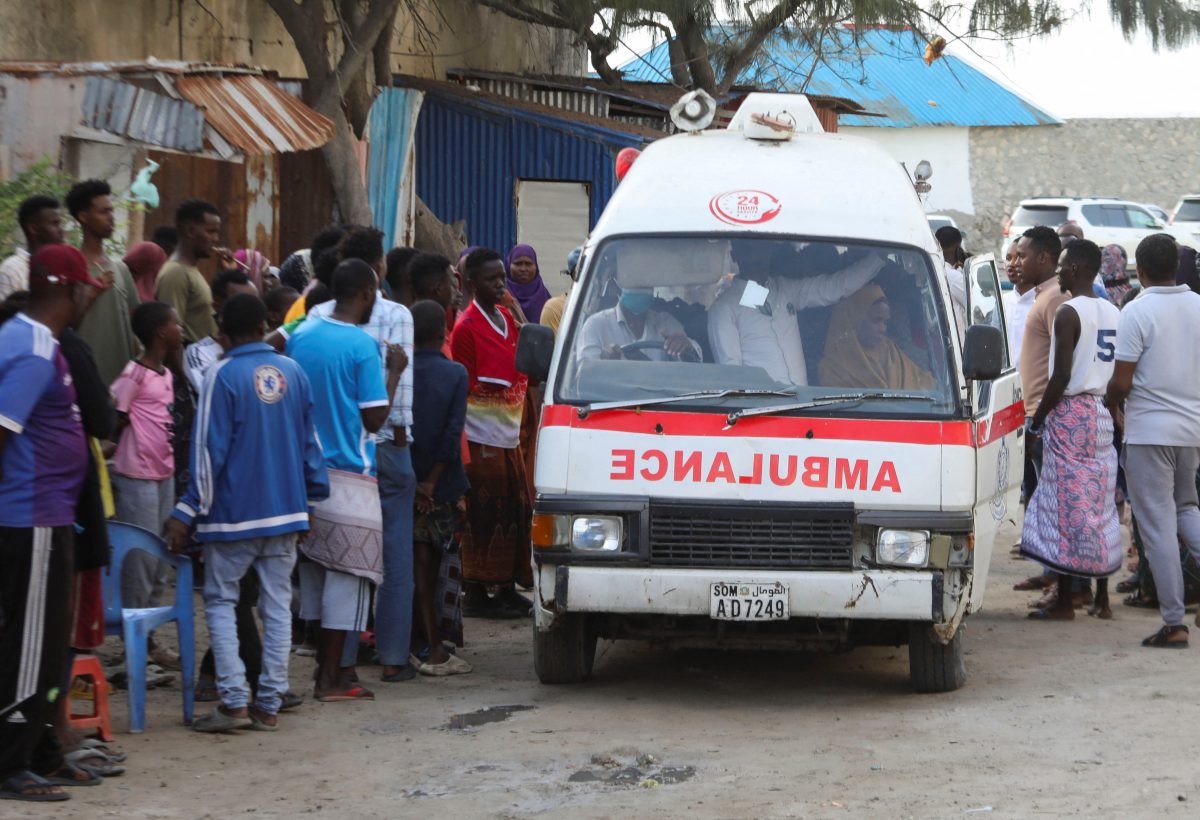MOGADISHU, (Reuters) – At least 32 civilians were killed and 63 injured in an explosion on a popular beach in the Somali capital Mogadishu late on Friday evening, police said, an attack the government blamed on militant Islamist group al Shabaab.
It was the deadliest attack in the Horn of Africa country since twin car bombs detonated near a busy market intersection in October 2022, killing at least 100 people and wounding 300 others.
In addition to the civilians killed at the beach restaurant, police spokesperson Abdifatah Aden said one soldier was killed during the assault.
One of the attackers blew himself up while three others were killed by security forces. One attacker was captured alive, Aden said.
There was no immediate claim of responsibility by the al Qaeda-linked al Shabaab, which has claimed similar attacks in the past, including the car bomb attack in 2022.
Hassan Farah, a survivor, described the shock as the explosion shattered a peaceful evening.
“I was in the restaurant sipping coffee and having a good chat with friends when I saw a big man running, in a second there was something like lightening and a huge blast,” he told Reuters.
“We were covered with smoke. Inside and outside the restaurant many people were lying on the floor while others were bleeding and crying.”
On Saturday morning, the beach was strewn with sandals and shoes left by people as they fled the scene.
President Hassan Sheikh Mohamud and Prime Minister Hamza Abdi Barre met with security agencies after the attack and drew up plans to strengthen the city’s security, the president’s office said in a post on X.
“The government is determined to eliminate the terrorists. The terrorists want to terrify the civilians. Let the civilians report the terrorists hiding among them,” the post said.
Somali government officials typically use the word terrorist to mean al Shabaab, but without specifically naming the group.
Al Shabaab controlled a vast area of Somalia before being pushed back in government counteroffensives since 2022. However, the militants remain capable of launching significant attacks on government, commercial, and military targets.

